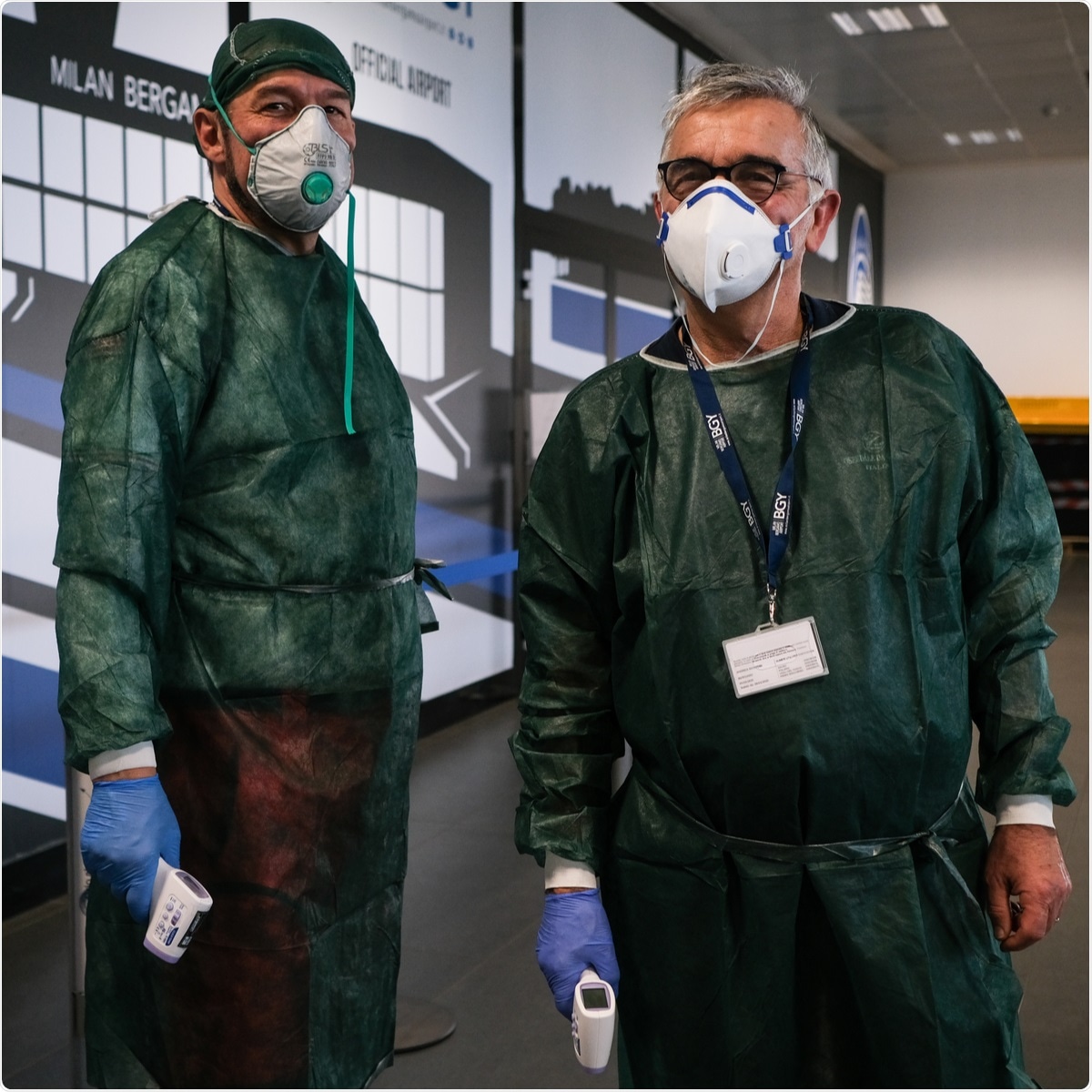All countries were not prepared to face the coronavirus disease 2019 (COVID-19) pandemic, the largest viral outbreak in the past century. The pandemic has impacted more than 191 countries, infecting over 64.69 million people.
Amid the coronavirus pandemic, healthcare systems have been overwhelmed, and healthcare professionals have been working tirelessly to contain the virus's spread and prevent being infected themselves.
Called frontliners, health workers have been heroes during the past year, as they have fought to save the lives of those infected with severe acute respiratory syndrome coronavirus 2 (SARS-CoV-2), the pathogen that causes COVID-19.
A report by neurosurgeons at the Papa Giovanni XXIII Hospital in Bergamo, Italy, highlights the strategies their unit had to take to help combat the viral illness, which has claimed the lives of more than 1.49 million people worldwide. The study was published in the Journal of Neurosurgery in December 2020.

Bergamo, Italy- 22 February 2020. Image Credit: Grabowski Foto / Shutterstock
The COVID-19 pandemic has been particularly hard on Italy, one of the most afflicted countries in Europe. To date, the country reports at least 1.64 million confirmed cases and about 57,000 deaths.
The researchers explained:
This paper aims to share our significant experience as a neurosurgical spoke center, hoping that it can be helpful to other colleagues in the world, in the distant event of a new pandemic.”
Lessons learned from COVID-19
The doctors noted that they learned many things during the first wave of the outbreak in the country.
First, rationalizing resources by creating hub-and-spoke centers to concentrate significant forces on the outbreak without compromising other patients' health with urgent needs is crucial. It makes sure that every patient will be attended to.
The hub-and-spoke centers focused on executing a streamlined prioritization and triage process, which helped the doctors maintain a high standard of neurosurgical care.
The neurosurgeons made sure to carefully choose all surgical cases that could be postponed without posing a danger to the patient's life. They ascertained that though these surgeries are moved, the patients will not suffer from neurological worsening.
As a result, the effective triaging helped allocate the resources and workforce, including neurosurgeons, nursing staff, ICU beds, and operating room slots. The health workers managed the patients in the spoke center who did not need a bed in the ICU, which would otherwise have risked clogging the hub center. Meanwhile, for patients with subarachnoid hemorrhage with acute hydrocephalus, the doctors managed and stabilized them and sent them to the major surgery hub center.
The team also learned the importance of being prepared with personal protective equipment (PPE) to provide for all professional workers. The protection of the safety and health of the health workers should be a priority of health institutions.
Further, it is also crucial for the health institution to free up beds in the wards to become ICU beds and reallocate resources usually dedicated to other services, including monitors and ventilators. This way, the hospital can cater to patients affected by the ongoing pandemic.
It is also vital to train staff to the new needs and demands of fighting the COVID-19 global health crisis. The neurosurgical unit also selected the health workers at low risk of developing severe disease to take care of COVID-19 patients. This reduced the risk of contracting the virus and becoming ill with potential complications.
Health care workers and patients should be tested. Patients, for one, should undergo testing before being hospitalized.
The doctors also urged the patients to stay at home and limit their access to healthcare facilities. This way, there is a reduced risk of getting infected. However, the doctors provided an alternative means for consultation, through a phone call or by telemedicine.
Conclusion
The study highlights how hospitals and health care centers can handle the sudden surge of COVID-19 cases. The study findings, which shared the doctors' experiences during the first wave of the outbreak, could help formulate new strategies and policies for other hospitals to prepare them for the second wave of the pandemic.
Source:
Journal reference: